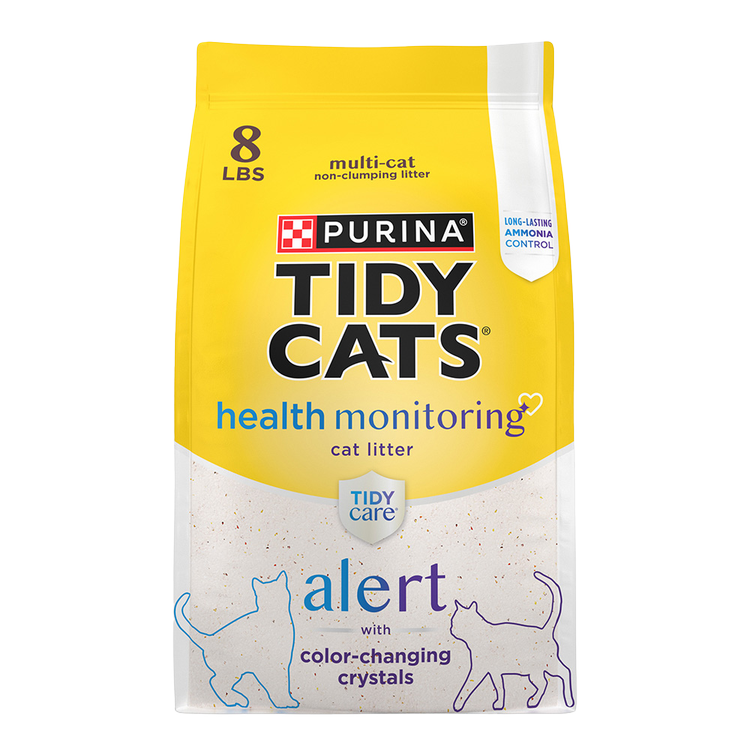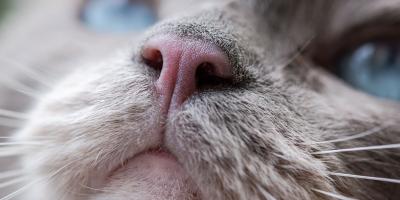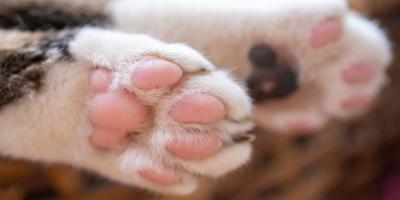Understanding Cat Asthma, Including the Best Cat Litter for Cats with Asthma


Humans aren’t the only ones that can suffer from asthma. One of the most common respiratory diseases in cats, asthma affects between 1-5% of cats. The average age of cats diagnosed is between 4-5 years.
If you think your cat may have asthma, it’s important to see your veterinarian to get a proper diagnosis and treatment plan. Here’s some helpful information to give you a little background so you feel more prepared for your visit.
Described as a constriction of the airways, asthma occurs when the immune system overreacts to an allergen, resulting in inflammation. Cat asthma is not contagious. While it has been hypothesized that genetics may play an underlying role, research in this area is still ongoing. The professional consensus is that if a cat has asthma, symptoms can be triggered by a host of environmental factors.
“While the exact cause of feline asthma remains unknown, the prevailing thought in veterinary medicine is that the symptoms of asthma are triggered by an allergic response to inhaled airborne particles,” said Purina veterinarian Dr. Kurt Venator, DVM, Ph.D. and Chief Veterinary Officer. “It can be a challenging condition to manage, as asthmatic cats can react to so many potential irritants in the environment.”
Classic signs of cat asthma include difficulty breathing, cat coughing and wheezing, along with many other signs. While it’s not curable, there are simple steps responsible pet owners can take today to help their feline companions breathe easier.
Journal Cat Coughing & Wheezing
If your cat does have asthma, it can be challenging to discover what is triggering the symptoms. In order to find out, owners will likely have to make changes in their home. Keep a journal and begin eliminating possible irritants. Evaluate and note any changes you see in your cat. This can be a slow process, but it’s vital in order to understand the cause of their symptoms. Remember, the signs of cat asthma can be exacerbated by a myriad of potential irritants in the environment.
Minimize Irritants that Can Cause Cats with Asthma to Cough or Wheeze
Cat owners are encouraged to avoid any potential environmental irritants such as mold, pollen, cigarette smoke, perfume, dust, etc. Clean your house more frequently, vacuum and change air filters to help keep the air clean. Try to be mindful of household cleaning agents, as some scented cleaners and air fresheners may serve as irritants.
Find the Best Cat Litter for Cats with Asthma
Because of the potential for airborne dust, veterinarians typically do not recommend clay-based litter for cats with respiratory issues. It’s important to consult with your veterinarian to get his or her recommendation on litter for cats with asthma. If a change is recommended, you may want to start your search with alternative litters.
Get Everyone on Board
It’s important that everyone in the household is aware of your cat’s condition and takes part in their health. Family members should be more cautious and responsible when inviting people into their homes. Something as simple as a different perfume odor or tracking in mud or dust may cause your cat to have an asthma attack.
For more information, talk to your veterinarian to determine if your cat suffers from cat asthma and how you can help.
Related articles

Earn myPurina Rewards with Every Purchase
Use your points for treats, toys, and gift cards with myPurina app.





